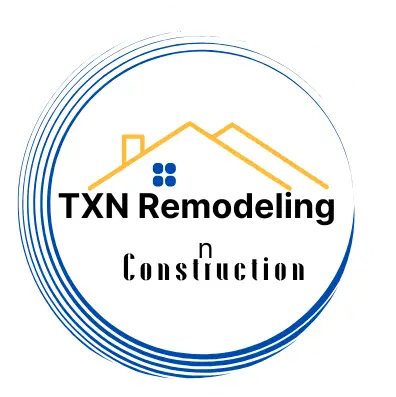Building a deck in Castroville, TX, requires careful planning to ensure compliance with local regulations, permits, and safety standards. Homeowners must obtain the necessary building, zoning, electrical, and plumbing permits before beginning construction. Additionally, inspections at various stages help confirm the deck’s structural integrity and adherence to codes. Other factors, such as HOA approvals, historic district restrictions, and property line considerations, should also be reviewed. By understanding these requirements in advance, homeowners can avoid legal issues, ensure safety, and build a durable, long-lasting deck for their outdoor space.

Permits Required
When building a deck in Castroville, TX, obtaining the necessary permits is essential to ensure compliance with local building codes and safety regulations. Failing to secure the right permits can result in fines, delays, or even the removal of the structure. Before beginning construction, homeowners should check with the Castroville Building Department to confirm the specific requirements. Permits help protect homeowners by ensuring that the deck is structurally sound and meets safety standards. Below are the main types of permits required for deck construction, depending on the size, height, and additional features of the deck.
Building Permit
A building permit is required for most decks to ensure they comply with local zoning laws and construction standards. This permit verifies that the deck’s design, materials, and structural integrity meet safety requirements. Factors such as height, load-bearing capacity, and attachment to the house are reviewed during the approval process. Before applying, homeowners may need to submit a site plan, structural drawings, and material details. Inspections are also part of the process to confirm compliance. Failing to obtain a building permit can result in fines or the forced removal of an unapproved structure.
Zoning Permit
A zoning permit ensures that the deck adheres to local land-use regulations, including property setbacks, lot coverage limits, and environmental considerations. In Castroville, decks must be positioned within a specific distance from property lines, fences, and neighboring structures. Homeowners in designated historic districts or communities with homeowner associations (HOAs) may face additional zoning restrictions. The zoning review helps prevent legal disputes and maintains neighborhood uniformity. Before obtaining a zoning permit, homeowners should consult city officials to confirm setback requirements and any restrictions related to deck size, height, and placement.
Electrical Permit
An electrical permit is required if the deck includes lighting, electrical outlets, ceiling fans, or heating elements. Any electrical work must comply with the National Electrical Code (NEC) and be performed by a licensed electrician in most cases. This permit ensures that all wiring, outlets, and fixtures are safely installed to prevent fire hazards and electrical malfunctions. Homeowners may need to submit electrical plans for approval, followed by an inspection after installation. Attempting to install electrical components without a permit can lead to code violations, safety risks, and difficulties when selling the property.
Plumbing Permit
A plumbing permit is necessary for decks that include water features, outdoor kitchens, sinks, or gas lines for grills and fire pits. This permit ensures that all plumbing work is done correctly, preventing leaks, drainage issues, or gas line hazards. The permit application typically requires detailed plans showing water supply lines, drainage systems, and gas connections. Licensed plumbers are usually required to perform the work to meet state and local plumbing codes. Inspections are conducted to verify compliance before the deck is approved for use. Failure to obtain a plumbing permit can result in costly repairs and safety hazards.
Inspections Required
Building a deck in Castroville, TX, involves more than just obtaining permits. To ensure compliance with local building codes and safety regulations, inspections are required at various stages of construction. These inspections help verify that the deck is structurally sound, properly installed, and meets all safety standards. Each phase of the construction process must be reviewed by a certified inspector to avoid costly mistakes, fines, or reconstruction. Below are the key inspections that may be required when building a deck in Castroville. Scheduling these inspections at the right time can help streamline the approval process and prevent delays.

Footing Inspection
A footing inspection is conducted before pouring concrete to check the depth, placement, and stability of the deck’s foundation. This inspection ensures that the footings meet local frost depth and load-bearing requirements, preventing future shifting or sinking. Inspectors verify that the holes are dug to the proper depth, the soil conditions are suitable, and the reinforcement materials comply with engineering standards. If the footings are not correctly installed, the inspector may require modifications before approving the next phase. Proper footing installation is essential for the deck’s long-term durability and structural integrity.
Framing Inspection
The framing inspection is performed after the deck’s structural framework, including joists, beams, and support posts, is in place but before decking boards are installed. This inspection ensures that all connections, fasteners, and materials meet safety standards. Inspectors check for proper spacing of joists, secure attachment to the house (if applicable), and overall load capacity. If any structural elements are improperly installed or fail to meet code requirements, adjustments must be made before proceeding. Passing the framing inspection is crucial, as it ensures the deck can safely support weight and withstand weather conditions.
Electrical Inspection
If the deck includes lighting, outlets, or powered accessories, an electrical inspection is necessary. This inspection verifies that all wiring, grounding, and circuit connections comply with the National Electrical Code (NEC) and local safety regulations. Inspectors check for proper conduit installation, secure wiring, and the correct placement of outlets to reduce electrical hazards. If issues such as exposed wiring, improper grounding, or overloaded circuits are found, corrections must be made before passing the inspection. Ensuring safe and code-compliant electrical work prevents fire risks and enhances deck usability.
Final Inspection
A final inspection is conducted once all construction is complete, including decking, railings, stairs, and any additional features. The inspector evaluates the overall safety, stability, and compliance of the deck, ensuring all previous inspection requirements have been met. This includes checking the handrail height, stair dimensions, and proper fastening of all components. If the deck passes the final inspection, the homeowner receives official approval to use it. If deficiencies are found, corrections must be made before obtaining final approval. Successfully passing the final inspection ensures that the deck is safe, legal, and ready for enjoyment.
Additional Considerations
When building a deck in Castroville, TX, securing the right permits and passing inspections are just part of the process. Homeowners must also consider zoning restrictions, HOA rules, environmental factors, and accessibility requirements. Overlooking these elements can lead to legal issues, project delays, or the need for costly modifications. Before starting construction, it’s important to review all local regulations, property limitations, and design guidelines. Planning ahead ensures a smooth building process and prevents complications. Below are some key considerations homeowners should keep in mind when designing and constructing their deck.
HOA Approval
If you live in a homeowners association (HOA)-regulated neighborhood, you may need prior approval before constructing your deck. Many HOAs have specific rules regarding deck size, materials, colors, and placement to maintain community aesthetics. Some associations require homeowners to submit design plans and obtain written approval before construction begins. Ignoring HOA guidelines can result in fines or forced removal of the deck. Homeowners should review their HOA bylaws and architectural guidelines to ensure compliance and avoid potential disputes with neighbors or the association board.
Historic District Regulations
Castroville has a rich history, and some areas are designated as historic districts with strict building guidelines. If your home is located in one of these areas, your deck design may need to align with historical preservation standards. This could include restrictions on materials, colors, and structural modifications that impact the home’s historic character. Homeowners should check with the Castroville Historic Preservation Office to understand any restrictions and obtain necessary approvals before beginning construction. Failure to comply with historic district rules can lead to fines or required modifications.
Property Line and Easements
Before building a deck, it’s essential to verify your property lines and check for any easements that might restrict construction. Easements are portions of land that must remain accessible for utilities, drainage, or public access, and building on them may be prohibited. Homeowners should review their property survey and local zoning laws to ensure that the deck is positioned within legal boundaries. Ignoring property line restrictions can lead to disputes with neighbors or legal action requiring removal or relocation of the deck.
Accessibility and Safety Features
When designing a deck, homeowners should consider accessibility features to accommodate children, elderly family members, and individuals with disabilities. This includes features like wider stairways, slip-resistant surfaces, and handrails at appropriate heights. For multi-level decks, installing ramps or step-free transitions can improve accessibility. Additionally, ensuring that the deck meets fire safety regulations and includes proper lighting enhances usability and security. Incorporating these elements not only increases comfort but also adds long-term value to the home.
Conclusion
A well-planned deck enhances a home’s outdoor living space, but proper permits, inspections, and legal considerations are essential for a successful project in Castroville, TX. Following city regulations ensures that the deck is safe, structurally sound, and compliant with local codes. Additional factors, including HOA rules, property easements, and accessibility features, should be addressed to prevent future complications. By preparing thoroughly and obtaining the required approvals, homeowners can enjoy a beautiful, code-compliant deck that adds value to their property for years to come.





